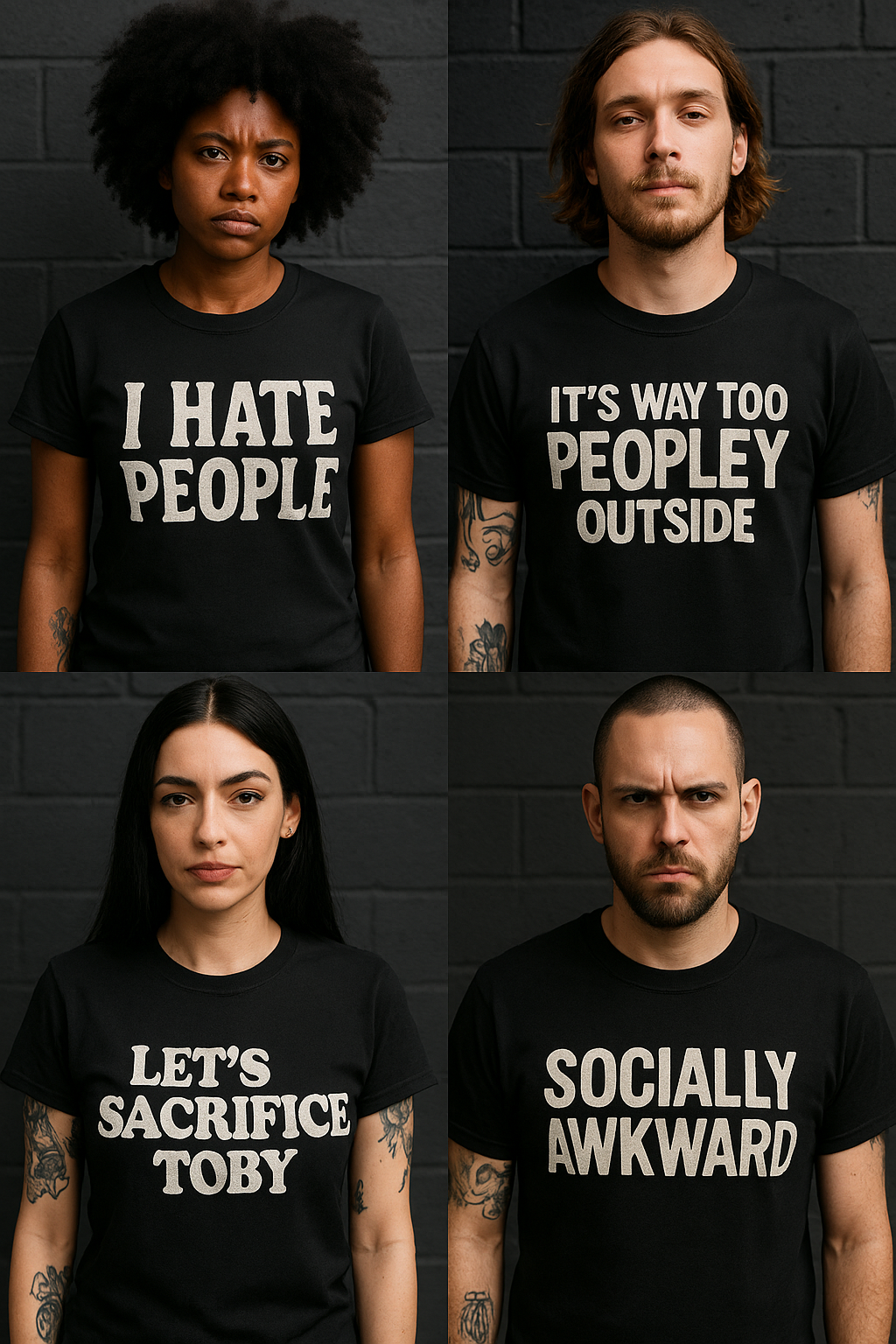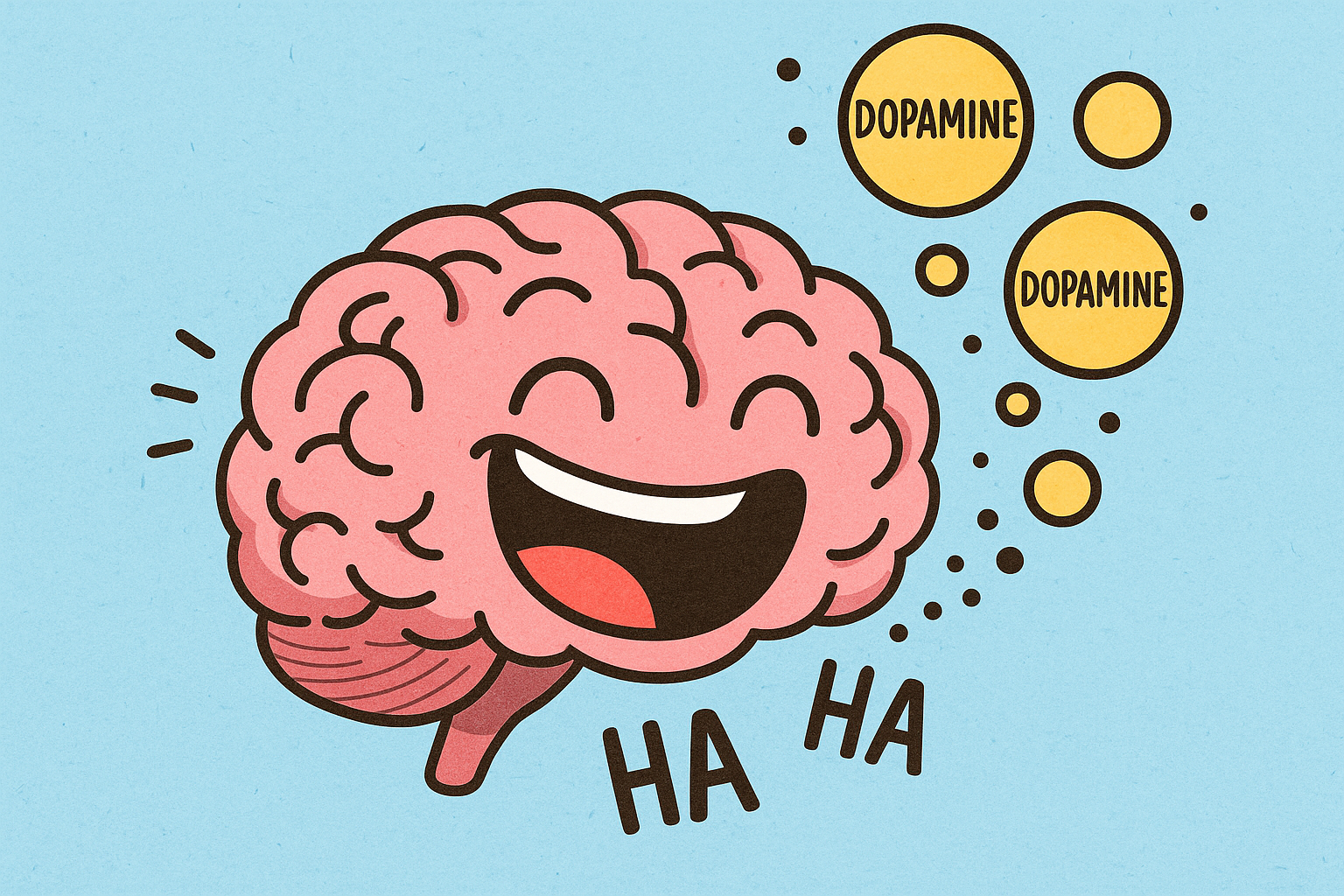Dark Humor Fashion and the rise of Edgy Tees.
Main Takeaway: Dark humor fashion have surged because they allow wearers to signal social identity, cope with taboo topics, and forge community through shared rebellious values, all while engaging sophisticated cognitive and emotional processes.
1. Introduction: Dark Humor as Social Identity
Dark humor fashion—graphic tees emblazoned with macabre jokes—has exploded in popularity among Gen Z and millennials seeking to broadcast membership in alternative subcultures. By wearing shirts that reference taboo themes like death, mental illness, or irony-laden social critiques, consumers instantly align themselves with a community that prizes boundary-pushing wit and nonconformity. This form of sartorial signaling communicates belonging to “toxic girls,” edgy streetwear enthusiasts, or satire-driven circle of friends who value irreverence and authenticity.

Collection of edgy tees featuring dark humor slogans in a streetwear style
2. The Role of Cognitive Reappraisal and Incongruity
Psychologists explain dark humor processing through incongruity theory: humor arises when an unexpected, absurd twist subverts the negative connotation of a taboo subject. This cognitive reframing triggers pleasure centers in the brain, releasing dopamine as the mind resolves the paradox of morbid content made funny.

Brain releasing dopamine illustrating humor processing
3. Coping Mechanism Meets Community Ritual
Beyond individual amusement, dark humor tees serve as collective coping tools. Displaying a shirt that jokes about, for example, anxiety or death, normalizes discussing distressing topics among peers. This shared ritual of taboo-busting fosters solidarity and a sense of safety within socially rebellious groups—key components of social identity theory3.
4. Social Identity Signaling Through Apparel
- Boundary Setting: By choosing extreme or morbid jokes, wearers define in-group norms and set themselves apart from mainstream fashion.
- Tribal Bonding: Recognizing another person’s shirt slogan creates instant rapport, effectively acting as a membership badge for alternative communities4.
- Status & Authenticity: Limited-edition dark humor drops enhance status signaling, as exclusive pieces convey insider knowledge and taste.
5. Dark Personalities, Sadism, and Trolling Tendencies
Contemporary research links preference for dark humor to higher endorsement of Machiavellian and sadistic traits. Those drawn to trolling and online aggression often gravitate toward more extreme dark humor, viewing it as an acceptable outlet for antisocial impulses.
6. Why Edgy Tees Will Continue to Dominate
- Growing Acceptance: As mental health dialogues become mainstream, dark humor tees bridge the gap between taboo and conversation, making them timely social statements.
- Fast Fashion Meets POD: Print-on-demand enables rapid design cycles that align with fleeting meme culture, ensuring fresh, socially relevant slogans.
- Community-Driven Marketing: Influencers and niche bloggers champion dark humor apparel, reinforcing its role in identity construction and peer recognition.
Conclusion: Edgy dark humor tees succeed by merging sophisticated psychological mechanisms with powerful social identity signaling. They’re more than a joke on fabric—they’re a wearable badge of communal belonging for consumers who refuse to blend in.
